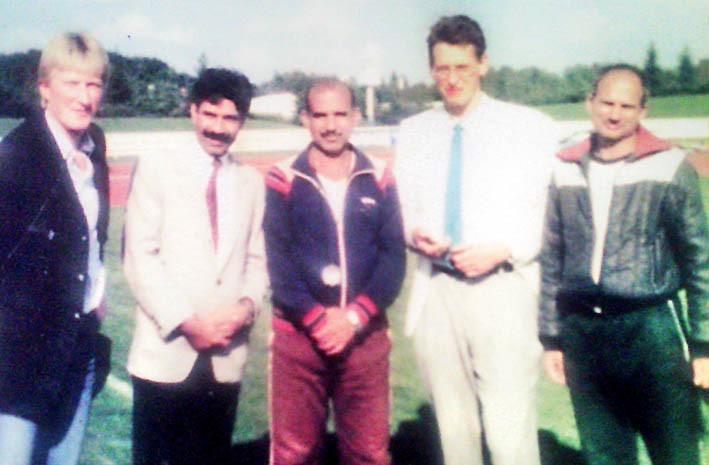
We don’t have a John Major or Gough Whitlam in our ranks. We are controlled by incompetent cronies and poor leaders who only know how to use sport for political gains

Indian legend Milkha Singh, perhaps the greatest athlete produced in the Subcontinent, in an interview to a foreign media house, said: "My last desire before I leave this world is that I want an Indian boy or a girl to win an Olympic gold medal for the country."
The flying Sikh, now 82, lives in Chandigarh. His fierce competitor Abdul Khaliq Khan, the flying bird of Asia, who clocked 9.6 seconds in 100-metre sprint at Manchester in 1957, rests in peace in the Military garrison of Rawalpindi.
Khaliq was luckier than Milkha that he didn’t live long to witness the demise of sports in general and athletics in particular in this part of the world where 1.8 billion people live. These people have managed only 32 Olympic medals since 1947.
Out of the thirty two medals, twenty have been won by India, ten by Pakistan and two by Sri Lanka. India and Pakistan won most of their medals in men’s hockey.
There have been a few wins in boxing, wrestling, tennis, weightlifting, and rifle shooting. The only success in the field of athletics was achieved by Major Duncan White of Sri Lanka in 1948 Olympics, who won the silver medal in 400 metre hurdles and Susanthika in 200 metre event of women in 2000 Sydney Olympics.
Why has such a large portion of the world population failed to make an impact at the highest level in sports other than field hockey? Is it true that yellow and brown race is inferior in physical characteristics to the mighty blacks and the shrewd whites? Shall India and Pakistan only play cricket? Should Milkha Singh live the rest of his life in frustration?
Sports are now a science and industry. Unless we eliminate nepotism and politics from sports and bring in professionalism and transparency, Sub-continental countries can’t even dream of achieving any worthwhile position in Olympics.
Sports development is all about providing opportunities to individuals to engage in different physical activities. Sports development takes place differently at different levels and in different social contexts.
Sport scientists explain that professionalisation in modern sports has not occurred automatically or by chance but is a result of an occupational perspective.
If governments and managers in the Subcontinent want to attain some respect in international sports they should understand the latest paradigms and frameworks of sports development.
They have to get out of their limited knowledge of "physical education" that revolves around the length of a badminton court and weight of a hammer. They must understand the latest theories like Long Term Athlete Development Model (LTAD) or Gulbin’s work of 2013, also known as FTEM model (Foundation, Talent, and Elite & Mastery).
They have to raise the bar of sport knowledge and adopt strategies like nine pillars.
There are many models of sport development in the world. Leave US aside where elite sports are developed in free market due to private sport clubs and highly developed university sport standards and look into UK and Australian sport development systems and learn a few valuable lessons.
I am choosing United Kingdom because a large portion of the Subcontinent has been a British colony. The standard of Olympic sports has improved immensely in the UK since 1990 when Prime Minister John Major was in charge.
John Major gave the vision of London Olympics 2012 and currently works for a sport for development organisation in the UK.
In Australia, the Australian Sports Commission (ASC) provides the federal lead for sport development and performs this role predominantly in conjunction with National and State Sporting Associations as well as local government.
The election of Gough Whitlam’s labor party in 1972 marked a significant development for sport policy in Australia. In 1975 sport was recognised by the government as integral part of Australian life. In 1980s two key national sports governance bodies were established: the Australian Institute of Sport (1981) whose remit was to develop high performance sport and Australian Sport Commission (1985) which performed a wider mandate of providing ministerial advice to federal and state sport authorities.
Athletes in the Subcontinent require constant financial support and training in special centers where committed coaching staff should guide them to the path of success.
The Subcontinent in general and Pakistan in particular has a large pool of talented youngsters. What it lacks is a strong sport system backed by able sport and political leadership.
But we don’t have a John Major or Gough Whitlam in our ranks. We are controlled by incompetent cronies and poor leaders who only know how to use sport for political gains.
This unfortunate situation is not likely to change in near future and winning gold at the next Olympics by a Subcontinental athlete will sadly remain a dream.